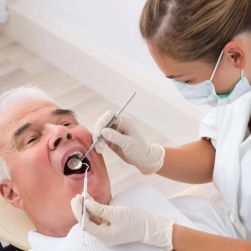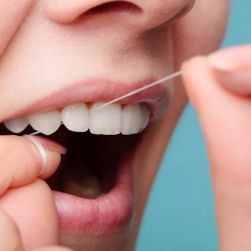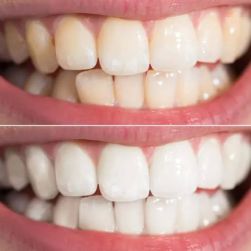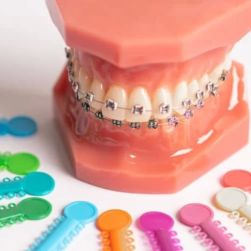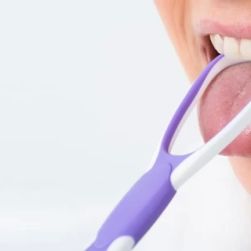Why Good Dental Care is Crucial for Elderly Patients
As we age, it’s easy to overlook the importance of maintaining good dental care. However, dental health for elderly patients plays a crucial role not only in their overall well-being but also in their confidence, comfort, and ability to enjoy life. As someone who has witnessed the transformation in my own family, I can confidently say that proper dental care can make all the difference. In this article, I will share my personal insights on why dental care should be a priority for elderly individuals, and how it can improve quality of life in ways that go beyond just healthy teeth.
Understanding the Importance of Dental Health for Seniors
When we talk about aging, dental health is often the last thing that comes to mind. Yet, as we age, our oral health becomes more vulnerable to several issues, such as gum disease, tooth decay, and the natural wear and tear that comes with decades of use. The elderly often experience changes in their mouths that can be difficult to manage, including dry mouth (a common side effect of many medications), tooth loss, and weakened enamel. These issues can impact not just their ability to chew and speak, but also their self-esteem and overall health.
Many seniors also face challenges in accessing proper dental care, whether due to mobility issues, financial constraints, or simply not recognizing the importance of dental health. However, neglecting oral health in our golden years can lead to a cascade of complications. Poor dental hygiene can increase the risk of cardiovascular disease, diabetes, and other systemic health problems. It is essential that we, as a community, emphasize the importance of senior dental health and encourage elderly patients to take proactive steps to care for their teeth and gums.
Common Dental Issues Faced by Elderly Patients
Throughout my experience, I’ve seen how a lack of attention to oral health can lead to a series of common dental problems that elderly patients face. Some of these issues can be easily avoided with regular dental checkups and proper oral hygiene. Below are some of the most common challenges:
- Tooth Decay and Cavities: Even as we age, plaque buildup and cavities can still form, especially if an individual has a history of poor dental hygiene. Seniors with limited access to dental care or those who have dentures may be at a higher risk of developing cavities.
- Gum Disease (Periodontal Disease): Gum disease is a widespread issue among elderly patients. As gums recede with age, it leaves the teeth more vulnerable to infections. This can lead to painful, swollen gums, and even tooth loss if left untreated.
- Dry Mouth: Dry mouth is a common problem for seniors, often caused by medications. This condition can lead to discomfort while eating, speaking, and swallowing, and also increases the risk of cavities and gum disease.
- Tooth Loss: Missing teeth are a frequent consequence of poor oral care and aging. This can severely affect a senior’s ability to eat and communicate effectively. Dentures or implants can help, but proper care is necessary to avoid further complications.
How Good Dental Care Can Improve Quality of Life
Good dental care can significantly improve the quality of life for elderly patients. When seniors take care of their teeth, they don’t just preserve their smile—they also benefit from improved health and comfort. I’ve seen firsthand how restoring dental health can make a world of difference in someone’s life.
Take, for instance, my grandmother. As she got older, she became increasingly self-conscious about her smile, which caused her to withdraw from social activities. Her teeth had become brittle and stained, and she felt embarrassed every time she smiled. After we encouraged her to visit a dentist, she received dentures and learned better oral hygiene practices. The change was remarkable—she regained her confidence, started smiling again, and her overall mood improved. This transformation wasn’t just physical, but emotional and mental as well. Maintaining dental health doesn’t just prevent tooth loss; it promotes an overall sense of well-being that extends far beyond the mouth.
For many elderly individuals, the ability to chew food properly is directly tied to their nutrition and overall health. Dental problems like missing teeth or gum disease can make it difficult to eat certain foods, which can impact a senior’s diet and lead to malnutrition. Regular dental care can ensure that seniors maintain healthy teeth and gums, helping them enjoy a varied and nutritious diet that supports their health.
What Can Be Done to Promote Good Dental Care for Elderly Patients?
Encouraging elderly patients to maintain good dental habits can be challenging, but it’s crucial for their health. Here are some practical tips that can help:
- Regular Dental Checkups: Encourage seniors to visit the dentist at least twice a year. Regular checkups can help identify any potential issues early, allowing for quick intervention.
- Proper Brushing and Flossing: Brushing twice a day and flossing daily can prevent plaque buildup and the development of cavities and gum disease. For those with mobility issues, an electric toothbrush may make the process easier and more effective.
- Stay Hydrated: Dry mouth can be alleviated by drinking plenty of water throughout the day. Seniors can also use saliva substitutes or chew sugar-free gum to stimulate saliva production.
- Balanced Diet: A diet rich in calcium, vitamins, and minerals will support healthy teeth and gums. Encouraging seniors to eat foods that are gentle on their teeth, like soft fruits and vegetables, can prevent unnecessary wear on fragile teeth.
- Use of Dentures and Implants: For seniors who have lost teeth, dentures or dental implants can improve both the appearance and function of their smile. Regular cleaning and maintenance of these appliances are essential for oral health.
At the end of the day, dental care isn’t just about keeping teeth clean—it’s about improving overall health and enhancing quality of life. As I’ve seen through my own family’s experiences, taking the time to ensure proper dental care can lead to better health outcomes, greater comfort, and a higher level of happiness for elderly patients.
Addressing the Barriers to Dental Care for Seniors
Despite its importance, many elderly individuals struggle to access the dental care they need. Financial constraints, physical limitations, and lack of transportation can make it difficult for seniors to see a dentist regularly. As a society, we need to do more to ensure that elderly patients have the support they need to maintain good dental health. Offering mobile dental services, government assistance programs, or community-based dental clinics could make a significant difference in making dental care more accessible to the elderly population.
Ultimately, the key to ensuring good dental health for elderly patients lies in awareness, education, and access to care. By addressing these issues, we can ensure that our seniors enjoy healthier, happier lives well into their golden years.


